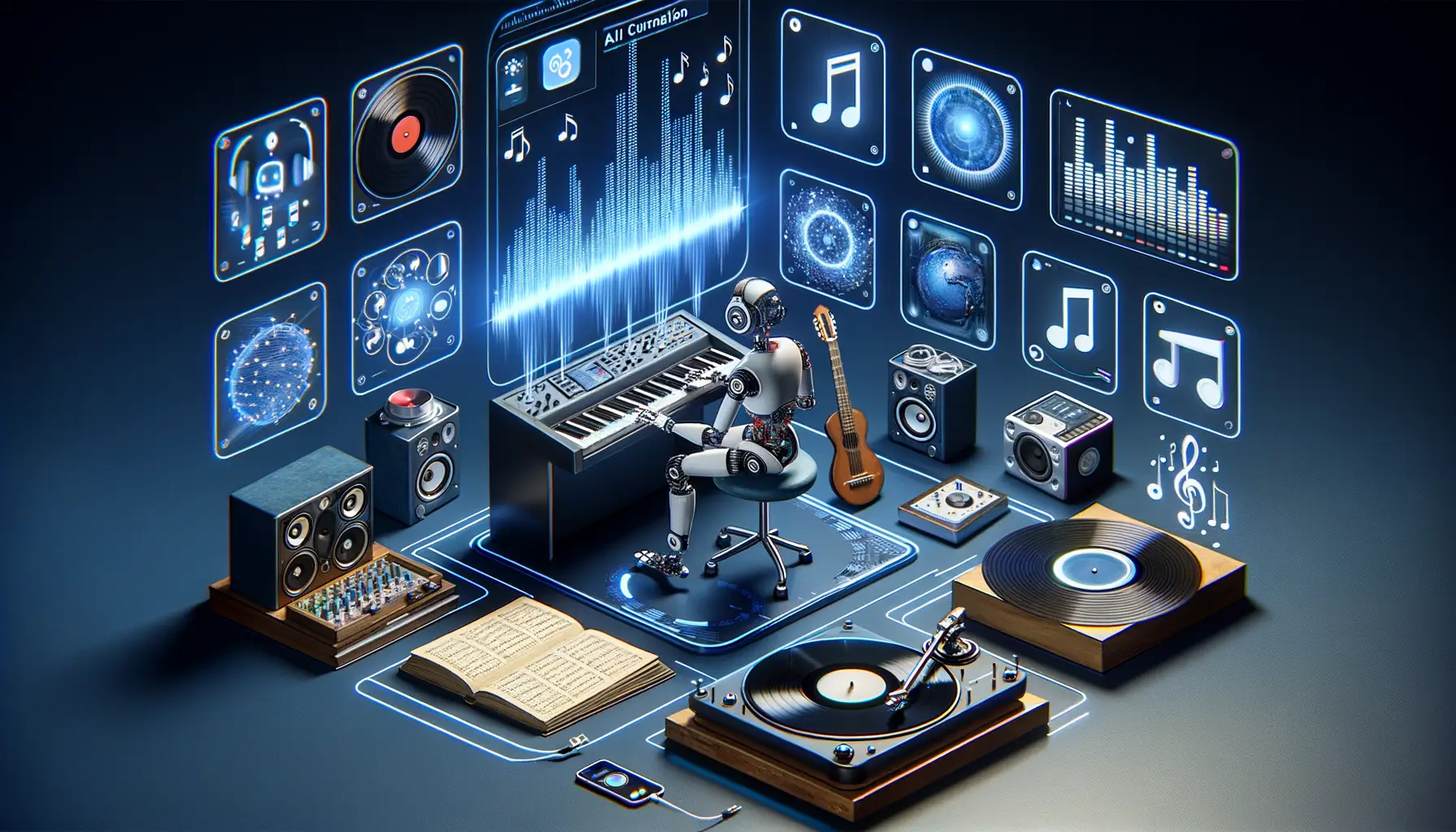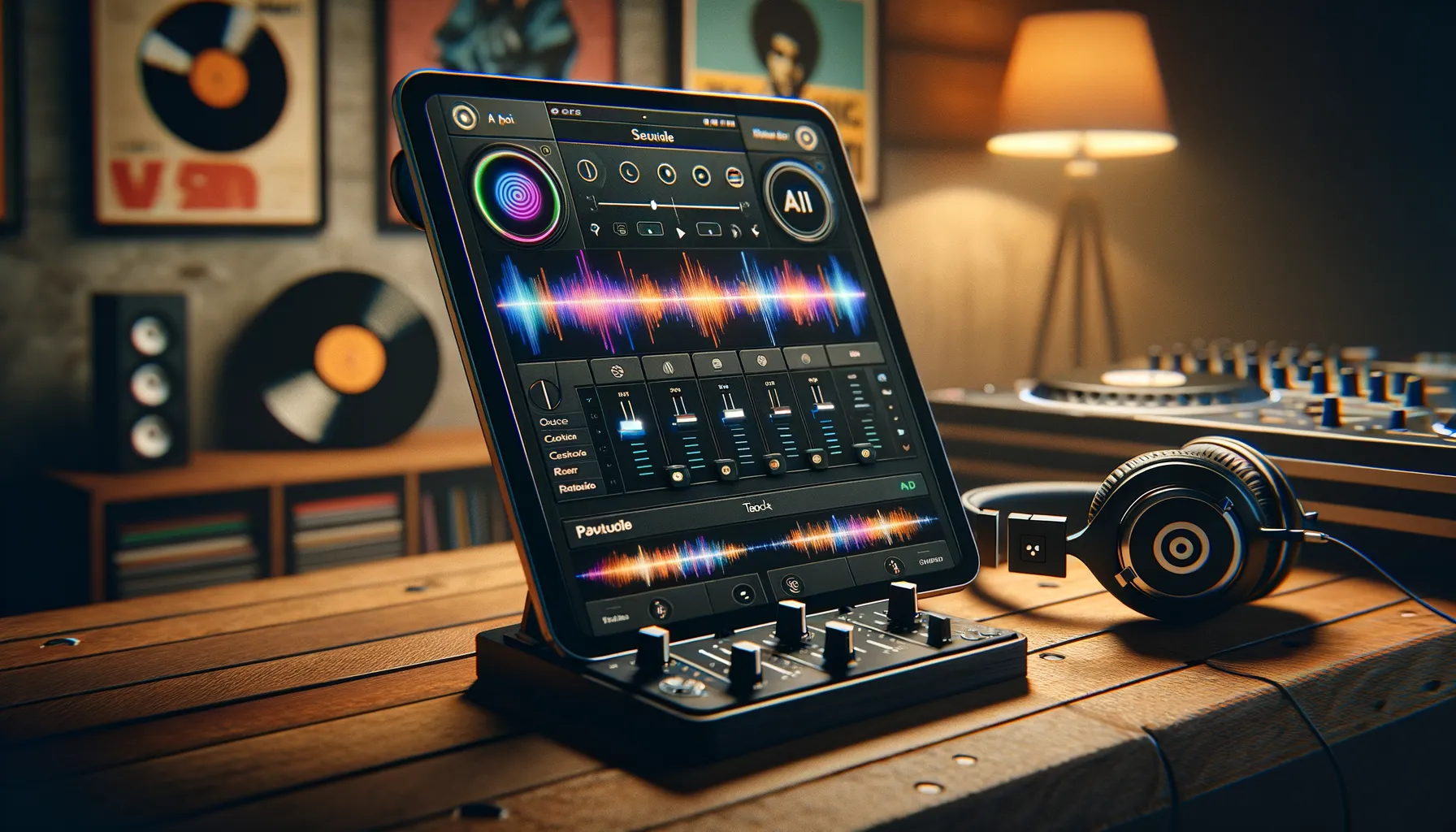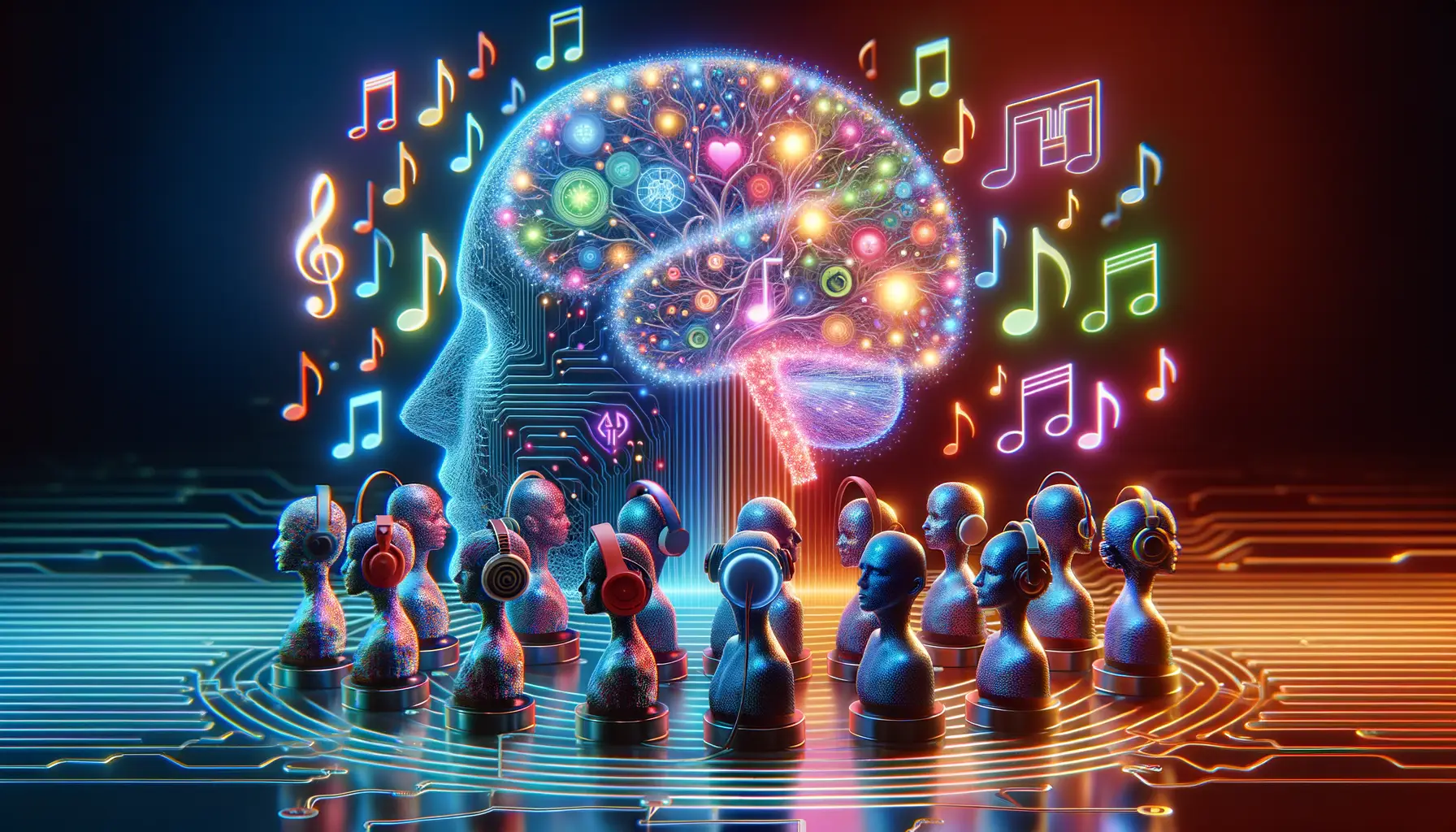Understanding AI’s Impact on Music App Data Analytics
The Symphony of AI and Music Apps
Picture this: you’re scrolling through your favorite music app, and it feels like the playlists were created just for you. That’s not magic—it’s the power of AI-driven data analytics. AI isn’t just a silent partner; it’s the maestro conducting the symphony behind the scenes, analyzing millions of user behaviors to strike the perfect chord.
Gone are the days when music apps simply suggested “popular tracks.” Now, thanks to AI, these platforms dive deep into your habits—when you hit replay, skip, or crank the volume up. For instance, AI might notice you lean towards upbeat tunes every morning but prefer mellow acoustics by night. This leads to eerily accurate recommendations that feel like cosmic alignment but are actually advanced algorithms at work.
- Natural Language Processing (NLP): AI analyzes lyrics to match your mood or even your social media posts.
- Behavior Prediction: It anticipates what you’ll love before you know it yourself.
Redefining Playlists Through Precision
What’s truly mind-blowing? AI doesn’t stop at predicting tastes; it discovers entirely new patterns in global listening trends. A song you’ve never heard from a genre you’ve ignored might surface—and unexpectedly become your jam! This isn’t guesswork; it’s a delicate weave of user data, emotional algorithms, and cultural evolution.
Key Benefits of AI in Modern Music Applications
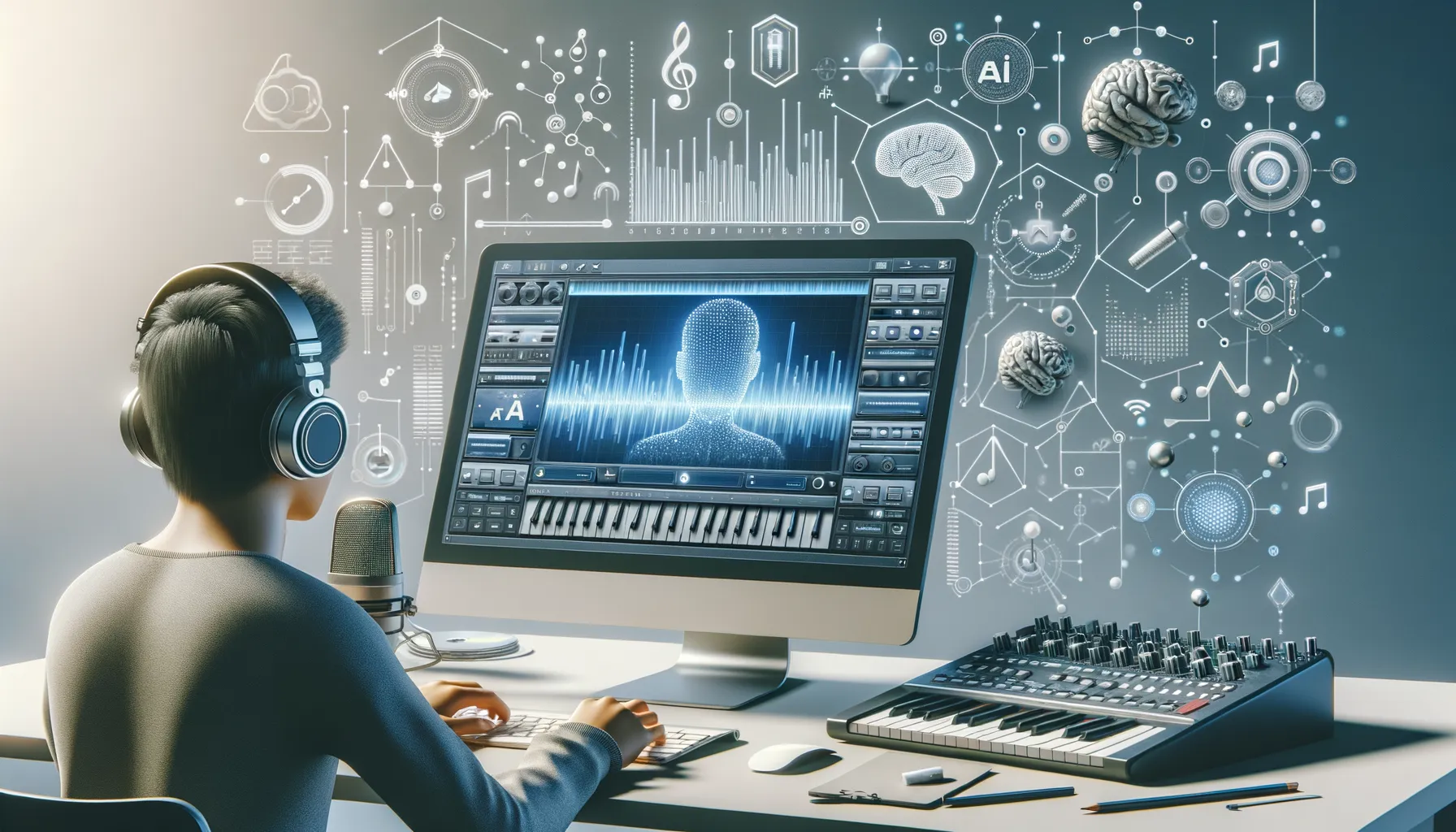
Revolutionizing Musical Discovery
Imagine opening your favorite music app and feeling like it truly “gets” you. That’s the magic of modern AI at work. With its razor-sharp ability to analyze patterns, AI can sift through millions of songs to serve up personalized recommendations that feel hand-picked just for you. Ever wondered why your workout playlist feels like it fuels exactly the right tempo for a sprint or a cool-down? It’s no accident—AI tracks not just your taste but even the beats per minute that push you toward your goals.
Here’s how AI supercharges the experience:
- Hyper-personalized recommendations: AI learns your sonic preferences, from moody acoustic ballads to wild EDM drops.
- Smart playlist curation: Think less swiping, more discovering—the app intuitively builds mixes for your every vibe.
- Genre diversity: Tired of the same old tunes? AI introduces you to hidden gems you didn’t know you needed.
Empowering Artists Behind the Curtain
But it’s not just listeners basking in AI brilliance—artists win big, too. With AI tools, musicians can analyze which of their tracks spark the most engagement and even uncover where their fanbase is growing. Picture this: an indie artist in Portland finds out they’re blowing up in Berlin, all thanks to AI-driven insights into user data!
For creators, platforms enriched with AI-driven analytics are invaluable, guiding everything from tour planning to crafting the perfect setlist. While you hum along blissfully, AI is working overtime behind the curtain, ensuring both fans and artists have their moment in the spotlight.
AI Techniques Transforming Music Data Insights
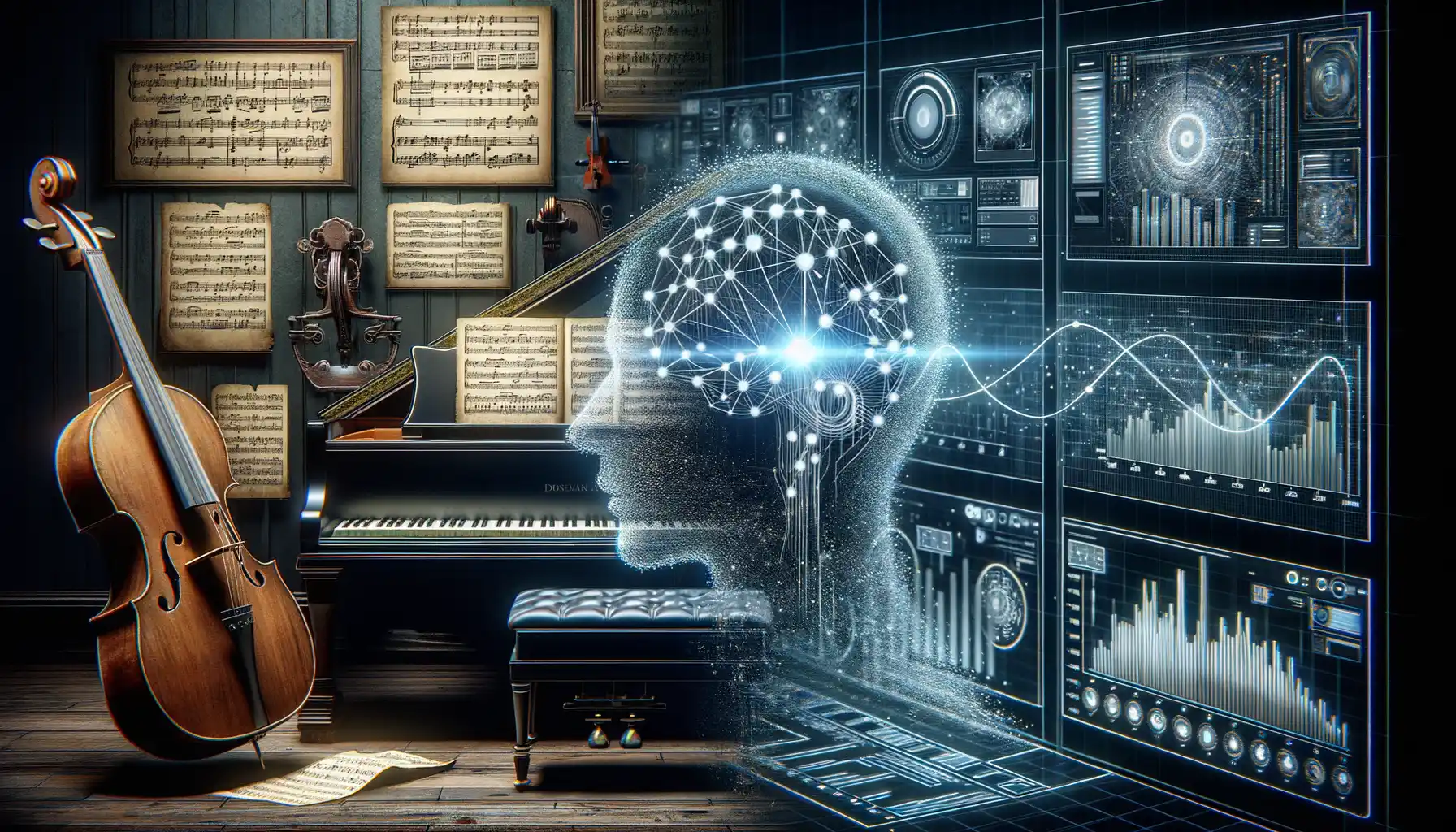
Unleashing Hidden Patterns in Music Data
Imagine your favorite music app knowing you so well, it feels like a personal DJ in your pocket. That’s the magic of advanced AI techniques digging deep into music data – they uncover patterns and insights that humans can’t even begin to see. Think about it: billions of streams, millions of playlists, countless user preferences. It’s a goldmine of information, and AI is the key that unlocks it.
One of the most transformative methods? **Deep learning algorithms**. They’re like musical detectives, analyzing everything from tempo to emotional tone across entire libraries. For instance, how does a rainy Tuesday affect your playlist choices? AI doesn’t just observe – it learns, adapts, and predicts.
- Natural Language Processing (NLP): Perfect for decoding lyrics and categorizing songs by themes, moods, or even societal trends.
- Clustering techniques: These group similar tracks or users together, making recommendations that hit closer to home.
It’s not just numbers on a spreadsheet; it’s the fabric of your music experience. AI bridges the gap between the science of sound and the art of personal connection, creating journeys as unique as your favorite song.
Challenges in Integrating AI for Music Analytics
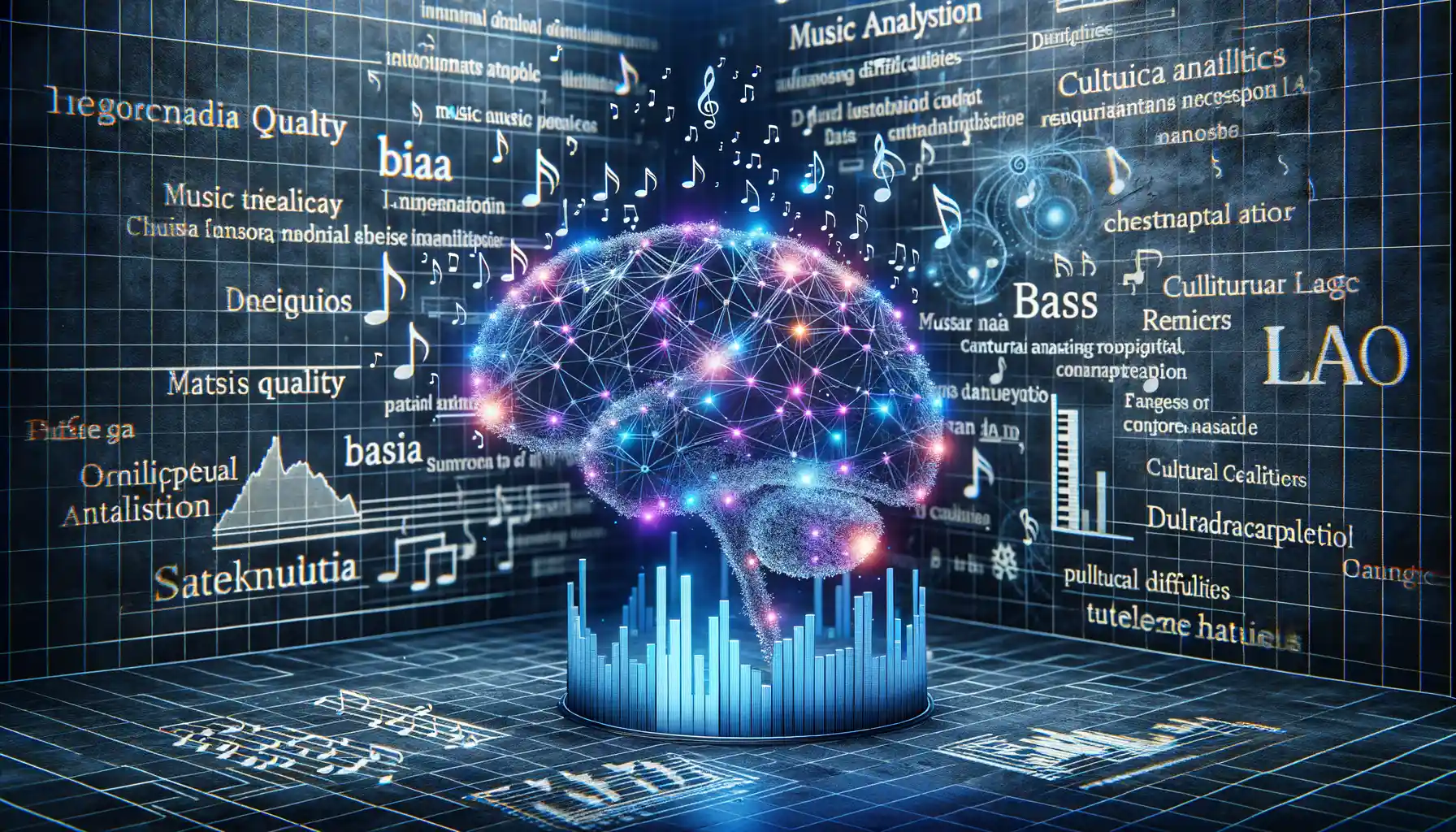
Breaking Barriers in AI and Music Data Harmony
Integrating AI into music analytics isn’t exactly a walk in the park—it’s more like trying to conduct a symphony with a dozen unruly instruments. Why? Because the challenges are as diverse as music itself.
First, there’s the issue of data itself. Music apps deal with an avalanche of information: streams per second, user preferences, genre trends, and even mood patterns. But not all this data is neatly organized. It can be messy, inconsistent, or even missing entirely. Feeding this chaos into AI systems is like asking a pianist to play on a broken keyboard.
Then, there’s the little devil called “bias.” When training AI models, if the input data skews heavily toward a specific genre or demographic, the results can feel one-note—ignoring smaller, niche genres or underrepresented communities entirely. The risk? A playlist world that feels stale and repetitive instead of vibrant and inclusive. Nobody wants their app to sound like it’s stuck in 2015!
- Real-time processing: AI has to analyze music trends faster than they emerge, a race that’s as relentless as a drumbeat.
- Licensing and copyright concerns: Training models on music data isn’t always legal without proper agreements. It’s a minefield!
Achieving an elegant balance between creativity and computational power is tough. But when it clicks, oh, it’s music to everyone’s ears.
Future Trends and Opportunities in AI-Driven Music Apps
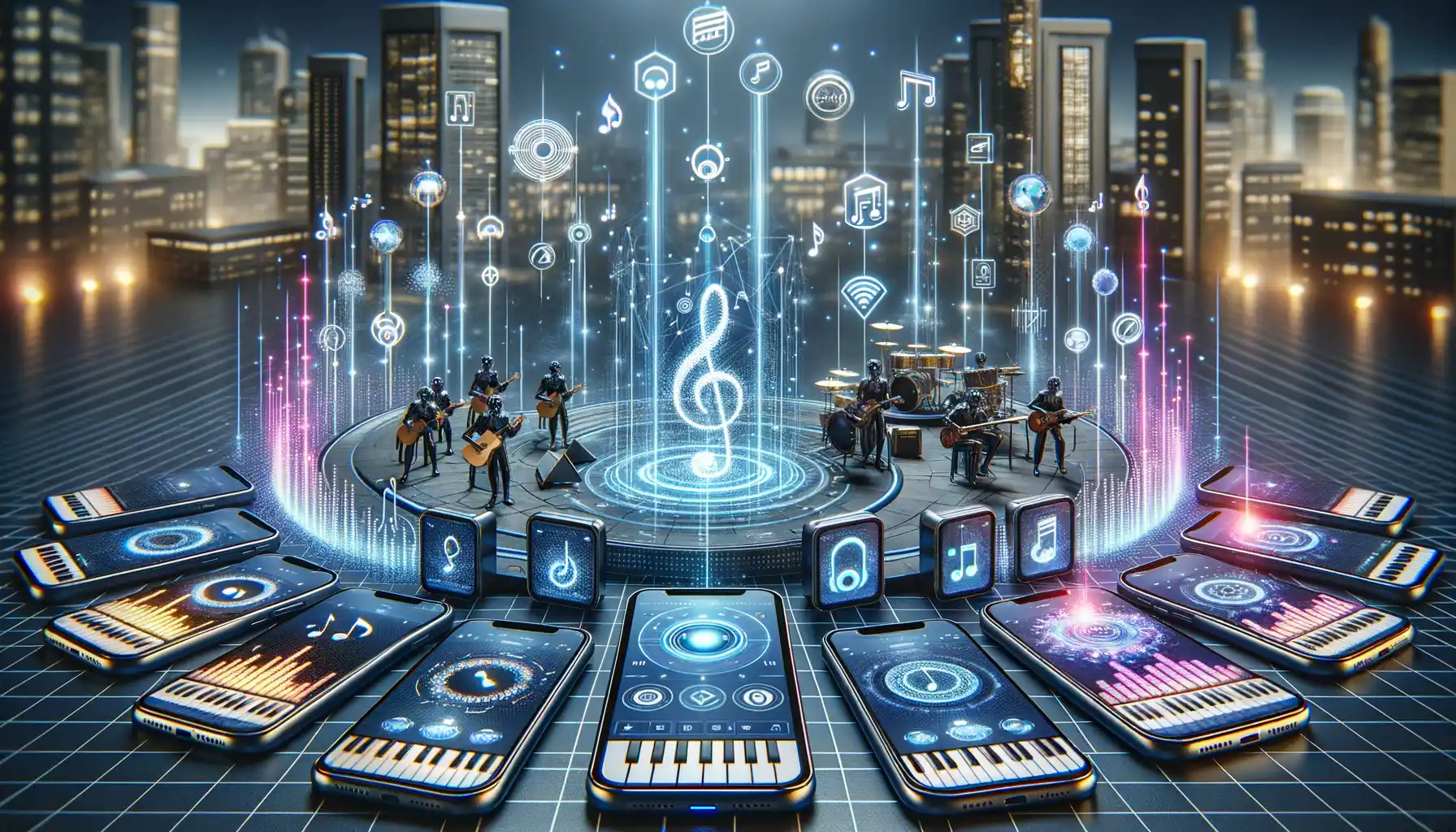
Revolutionizing Music Discovery with AI
Imagine opening your favorite music app and feeling like it just *gets* you. That’s where the future of AI-driven music apps is heading. With cutting-edge algorithms, these platforms are morphing into personal music concierges, curating tracks so perfectly attuned to your emotions and energy levels that it feels almost eerie—in the best way possible.
One standout opportunity lies in AI’s ability to predict musical trends before they explode. By analyzing streaming behaviors, social media buzz, and even regional preferences, platforms can spotlight emerging artists and genres before they hit the mainstream. It’s like having a crystal ball for the next big hit!
Moreover, AI-generated music is no longer sci-fi—it’s reality. Picture independent creators customizing background scores for their projects or fans “co-creating” songs with their favorite artists using AI tools. Suddenly, music isn’t just something you consume; it’s something you shape.
- Hyper-personalized playlists built on sentiment analysis—perfect for workouts, heartbreaks, or road trips.
- Virtual concert experiences enhanced with AI, letting fans interact in real-time.
The future of music? It’s not just heard—it’s felt, lived, and shared, all thanks to the dynamic duo of AI and creativity.
Shaping the Next Era of Music Analytics
AI isn’t only amplifying fan experiences—it’s a game-changer for the industry’s backbone: analytics. Think about how much data we generate daily through streams, likes, skips, and shares. That treasure trove of information, once overwhelming, is now pure gold for industry professionals.
For instance, record labels can use predictive analytics to forecast not just album sales but even tour attendance. Independent artists can tap into the same tech to understand where their fans are clustering geographically—and plan tours accordingly. Doors that were once locked for unsigned talent? They’re swinging wide open.
And then there’s the untapped potential of voice recognition. Ever asked your smart speaker to play a song, only to butcher the lyrics? Future AI could grasp your humming or vague descriptions—“you know, that song about sunshine”—and deliver results instantly.
It’s clear: AI isn’t just transforming how we listen, it’s reshaping the entire symphony of music creation, distribution, and enjoyment.





